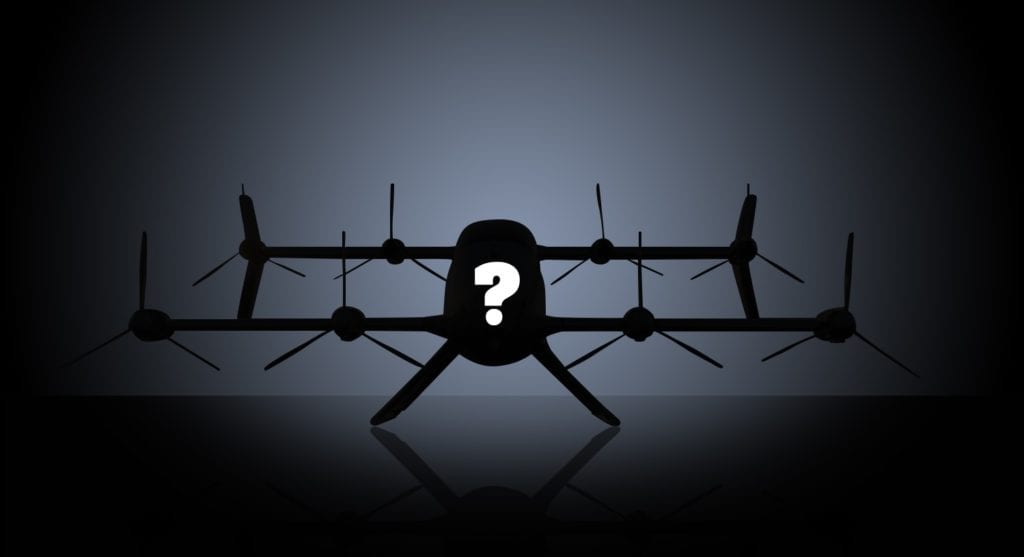
Archer Aviation, a stealth air taxi startup based in Santa Clara, California, is driving up the cost of UAM engineers and poaching talent from established players.
A stealth-mode startup working on electric aircraft is luring engineering talent away from other urban air mobility (UAM) companies with higher salaries, sources within the industry told Avionics International.
Santa Clara-based Archer Aviation, founded by Adam Goldstein and Brett Adcock, are driving up the price of experienced urban air mobility engineers across the region, sources told Avionics. Archer Aviation’s team is believed to be around 20 individuals — “probably enough to do trade studies and build a subscale model,” one source told me.
Archer Aviation has poached key talent from Larry Page-backed Kitty Hawk, developer of the Cora and Heaviside electric VTOL aircraft. The company also hired many former members of Airbus’ Vahana demonstrator team, led by Zach Lovering, which completed its flight testing in December 2019. Lovering is now CEO and founder of Aera Aircraft, a fixed-wing aircraft project launched by portions of the former Vahana team.
“There certainly was a lot of interest in the Vahana team’s future in the second half of 2019,” one industry source told me. “Archer got there first.”
In 2013, Goldstein and Adcock co-founded Vettery, a marketing software-as-a-service company, which the two sold to Switzerland-based staffing firm Adecco Group in 2018 for $100 million, the likely source for Archer Aviation’s funding.
“They probably have a team in place that they finance personally but with quite a high cash burn rate,” another source told me. “Either they raised a round already, or they need to worry about it in the next year or so, which does not sound very good right now,” the source added, referring to the ongoing coronavirus pandemic, which has effectively halted commercial aviation globally and slowed fundraising activity.
Goldstein and Adcock, who worked in banking, financial analysis and private equity prior to building Vettery, are not known to have significant aviation experience, leading many in the urban air mobility industry to view their venture with great skepticism. The founders of Germany-based Lilium, which recently raised $240 million to continue development of its air taxi, also entered the space with little aviation experience, after graduating from the Technical University of Munich (TUM).
Archer Aviation does have a registered aircraft, assigned N213A-001 on July 10, 2019. It is described by the Federal Aviation Administration’s aircraft registry as an ‘unknown’ type aircraft with electric-type engine(s) and a Mode S squawk code assigned, which suggests it has flown. Records on aviationdb.com add that the mystery aircraft has 16 engines and weighs 12,500 lbs or less. One source told Avionics that the aircraft is a lift-plus-cruise concept.
Registration records also list the aircraft’s manufacturer as University of Florida’s Unmanned Aircraft Systems Research Program lab, a multidisciplinary team of researchers working on small UAS for various research and monitoring purposes since the early aughts. Adcock and Goldstein are both alumni of University of Florida’s Warrington College of Business.
Current employees of UF UASRP did not respond to requests for clarification of the link between the lab and Archer Aviation, though one former employee who left in 2018 said they were not aware of the company or any aircraft project that fit the description.
“Until your email, I was not aware of a company named ‘Archer Aviation,’ nor an aircraft manufactured by the UFUASRP with 16 engines, the former employee told Avionics. “If this did come out of the UFUASRP, its design and construction would have had to occur after my departure.”
Goldstein declined to comment on his company’s activities for this article. “At this time, we’re not going to be commenting on what Brett and I are working on at Archer,” he told me via LinkedIn. “We’ll reach out to you when the time is right to dive into the details and the vision for our company.”
The best available description of Archer Aviation’s mission at the moment comes from a February 3 listing on StateAviationJournal.com, announcing the company as a new member of standards organization RTCA.
“Archer’s mission is to accelerate the benefits of sustainable air mobility,” the website states. “The company is currently developing an electric aircraft.”
Right now, the company’s biggest impact is on the price and availability of urban air mobility engineering talent.
One source with knowledge of industry-wide hiring trends said they believe Archer Aviation’s impact on salaries will be short-lived, and the cost to acquire talent will normalize this year — “back to pre-Archer levels.”
This article has been updated to accurately reflect background of the founders of Lilium.